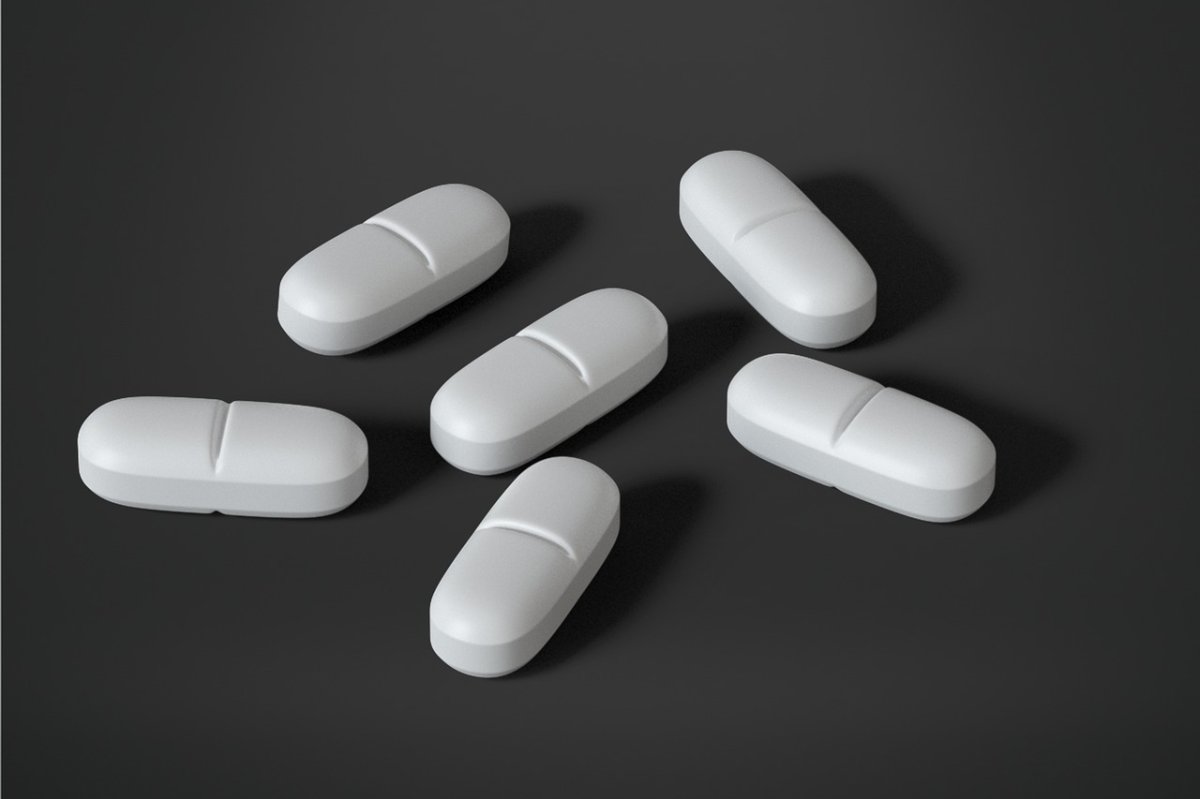[ad_1]
While the large greater part of dental implant procedures go smoothly, connected bacterial infections can up the threat for implant failure.
Antibiotics can hold that threat at bay, with penicillin the common go-to option. But new study warns that when sufferers are provided an alternate antibiotic thanks to problems above penicillin allergy, the possibility for dental failure appears to double.
Monitoring much more than 800 patients, investigators located that whilst dental implants fail in 8.4% of patients approved penicillin, that figure shoots up to more than 17% amid these provided a unique antibiotic.
“Dental implants fall short at a very minimal rate,” reported analyze lead creator Dr. Zahra Bagheri, a clinical assistant professor at New York College College or university of Dentistry. “But implant failure can occur when the entire body interprets the implant as a foreign entire body and attempts to get rid of it.”
To avert this from occurring, amoxicillin — a variety of penicillin — is approved because “it is powerful on most germs causing an infection in the mouth,” she stated.
Nonetheless, sufferers who are allergic to penicillin could working experience a “actual physical reaction of the overall body that can potentially be existence-threatening,” Bagheri noted.
In the United States, about 1 in 10 people studies possessing these kinds of an allergy to their dentist, the examine authors reported.
However they also stage to prior analysis suggesting that only about 1% of Us residents truly have a accurate penicillin allergy.
Why the discrepancy? On a single hand, virtually 50 % of individuals who are identified with a childhood allergy to penicillin “grow out of it as they get older,” stated Bagheri.
And on the other hand, somewhat minimal — and even frequent — reactions to penicillin are usually misinterpreted as a sign of an allergy.
Bagheri made available the case in point of “a client who feels nauseous after taking penicillin [and] may well convey to their medical doctor that they’re allergic, without acquiring taken a exam and figuring out for sure if the response was due to an allergy or not.”
Numerous dentists acquire the patient’s phrase and appear for substitute remedies, Bagheri stated.
Dental implant surgical procedures restores a lacking tooth or teeth with an synthetic gadget. The treatment can be time-consuming and high-priced, with a failed implant necessitating additional surgical processes.
To see if the form of antibiotic provided to dental implant clients influences the failure rate, Bagheri’s group focused on 838 patients. A tiny a lot more than half (434) claimed they experienced an allergy to penicillin.
None underwent testing to verify their noted allergy. In its place, they were being all presented a unique antibiotic. Different alternatives integrated clindamycin, azithromycin, ciprofloxacin and metronidazole.
By contrast, all the people in the nonallergy team had been offered amoxicillin.
The researchers described that dental implants were being effective in about 92% of patients prescribed amoxicillin.
But that good results level dropped to about 80% amongst people given clindamycin, and much less than 70% amid all those approved azithromycin. When averaged out amid all the nonpenicillin antibiotic selections approved, the accomplishment price hovered at all over 83%.
Also, any dental failure instances occurred inside of six months submit-process for the allergic group, in comparison with extra than a calendar year out for the other folks.
“At this phase, we don’t know if the failure is due to the people currently being not able to consider penicillin, and therefore being much more prone to an infection, or if there is certainly a thing else at perform,” Bagheri reported. “Long term experiments can assist further make clear this romantic relationship.”
But she suggested that sufferers who suspect a penicillin allergy need to get tested to see if which is definitely the situation.
“Our examine implies that if the affected individual is not truly allergic to penicillin, they may perhaps gain from using the [most] effective medicine to minimize their threat of implant failure,” Bagheri discussed.
The study outcomes have been not too long ago revealed in the journal Scientific Implant Dentistry and Linked Investigation.
Dr. Alan Gluskin, speedy past president of the American Association of Endodontists, seconded that thought.
“I think that’s a quite acceptable — in truth the most reasonable — tactic to this,” claimed Gluskin, who is also vice chair of endodontics at the University of the Pacific’s School of Dentistry in San Francisco.
“We will not know if this is accurate yet,” he cautioned. “And we really don’t know if this is about specific ecologies in people’s mouths — diverse bacterial counts and species in the mouth that may well respond far better to some antibiotics than other people. More analysis is wanted to come across out.
“But if significant investigate supplies great proof that that is the case, then, of training course, we must come to feel compelled to uncover out if and when another person truly has an allergy and make decisions based mostly on that screening and the science,” Gluskin reported.
Additional data
There’s far more on dental implants at the U.S. Food items and Drug Administration.
Copyright © 2022 HealthDay. All rights reserved.

[ad_2]
Resource backlink








More Stories
The Best Hollywood Actresses Hairstyles Of 2022
7 of the biggest oral health mistakes we’re making, according to a dental hygienist
Earth Diet Approved Mexican In Orlando- Reyes Mezcaleria